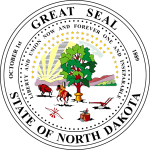Legislative Overview ~ April 24, 2025

Legislative Day 69 saw split sessions with the House gaveling in from 12:30 – 2:30 and then again from 5:30pm until nearly 8pm as they work to cover everything before them with the remaining days in this session. The Senate held only one floor session from 12:19 to 1:10 and will pick up tomorrow where they left off with many conference committee items to deliberate.
Here is a summary of what took place during today’s floor sessions:
2 Bills Passed in the Senate and awaiting Governor’s Signature: SB2265 & SB2308. Those that were failed include: SB2224.
23 Bills Passed in the House and awaiting Governor’s Signature: HB1022, HB1029, HB1143, HB1216, HB1363, SB2001, SB2007, SB2011, SB2013, SB2014, SB2018, SB2070, SB2112, SB2133, SB2180, SB2213, SB2271, SB2282, SB2323, SB2330, SB2374, SB2396, & SB2399 + SCR4007. Those that were failed include: SB2010. (do not concur) & SB2400.
The Bills we are tracking regarding the business world include:
SB2224: https://ndlegis.gov/assembly/69-2025/regular/documents/25-1099-03000.pdf ~ FAILED
This Bill proposes abolishing the North Dakota Gaming Commission and transferring its regulatory and administrative duties to the Attorney General’s office. The bill outlines the responsibilities of the Attorney General in overseeing gaming operations, including rule adoption, tax collection, and enforcement to ensure fair and lawful gaming activities. This change centralizes oversight within a single agency and may affect gaming organizations, manufacturers, and distributors. It could negatively affect stakeholders such as gaming operators, charitable organizations, and gaming equipment suppliers by introducing potential delays in regulatory processes due to the transition of oversight to the Attorney General’s office. The consolidation may result in changes to compliance requirements, increased scrutiny, and possible disruptions during the transition period. Smaller gaming operators might face challenges adapting to new administrative procedures and policies.
NOTE: A dedicated centralized gaming commission could provide specialized knowledge, streamlined operations, and a singular focus on industry regulations. In contrast, placing oversight under the Attorney General’s office could lead to increased legal scrutiny, centralized authority, and potential bureaucratic challenges for stakeholders adjusting to new regulatory frameworks.
SB2213: https://ndlegis.gov/assembly/69-2025/regular/documents/25-0425-05000.pdf
This Bill sets new requirements for mathematics education in North Dakota. It mandates that elementary and secondary math teachers demonstrate specific instructional skills, either through accredited training programs or by proving their mastery of outlined competencies. Teachers who do not yet meet these standards may be granted provisional licenses for up to two years. The bill also requires school districts and nonpublic schools to adopt evidence-based math curricula that align with state standards, offer differentiated instruction, and emphasize problem-solving and foundational skills. Schools must provide ongoing professional development for teachers and regularly assess student progress using formative assessments. Targeted interventions must be used to support students who fall behind, and schools must adopt approved, research-based intervention programs.
Stakeholders affected by this bill include teacher preparation programs, current and future math teachers, public and nonpublic schools, school administrators, and students.
SB2282: https://ndlegis.gov/assembly/69-2025/regular/documents/25-1035-05000.pdf
This Bill introduces a state income tax credit for North Dakota employers who contribute to their employees’ child care expenses. Qualified employers can claim a credit equal to 50% of their total child care contributions during a tax year, up to $1,000 per employee. These contributions may be direct payments to licensed child care providers or reimbursements to employees for child care costs incurred to enable them to work. To qualify, employers must offer equal child care support opportunities to all employees with child care needs.
The credit is non-refundable and cannot exceed the employer’s tax liability for the year. Any unused credit cannot be carried forward or backward. For pass-through entities like partnerships or S-corporations, the credit is calculated at the entity level and distributed to owners based on their ownership shares. The tax commissioner will provide the necessary forms and procedures for claiming the credit. This policy applies to tax years beginning after December 31, 2024.
Stakeholders affected by this bill include North Dakota employers, particularly small and medium-sized businesses seeking to support working parents; employees with young children who may benefit from reduced child care costs; and licensed child care providers who may see increased demand.
SB2308: https://ndlegis.gov/assembly/69-2025/regular/documents/25-0776-06000.pdf
This Bill introduces a state income tax credit for North Dakota employers who contribute to their employees’ child care expenses. Qualified employers can claim a credit equal to 50% of their total child care contributions during a tax year, up to $1,000 per employee. These contributions may be direct payments to licensed child care providers or reimbursements to employees for child care costs incurred to enable them to work. To qualify, employers must offer equal child care support opportunities to all employees with child care needs.
The credit is non-refundable and cannot exceed the employer’s tax liability for the year. Any unused credit cannot be carried forward or backward. For pass-through entities like partnerships or S-corporations, the credit is calculated at the entity level and distributed to owners based on their ownership shares. The tax commissioner will provide the necessary forms and procedures for claiming the credit. This policy applies to tax years beginning after December 31, 2024.
Stakeholders affected by this bill include North Dakota employers, particularly small and medium-sized businesses seeking to support working parents; employees with young children who may benefit from reduced child care costs; and licensed child care providers who may see increased demand.
SB2396: https://ndlegis.gov/assembly/69-2025/regular/documents/25-1372-07000.pdf
This Bill mandates a performance audit of the North Dakota Development Fund (NDDF), covering the period from July 1, 2019, to June 30, 2024. The audit will assess the fund’s economy, efficiency, and effectiveness by examining internal processes, controls, and outcomes to identify areas for improvement and provide recommendations for corrective actions. The state auditor’s office is tasked with contracting an independent third party to conduct this audit, with the final report due by August 1, 2026. Subsequently, the report will be presented to the Legislative Audit and Fiscal Review Committee and to legislative management before September 30, 2026.
The bill also amends Section 10-30.5-08 of the North Dakota Century Code to clarify that the state auditor’s office may conduct the annual audit of the NDDF’s financial statements or, if not, must contract with a certified public accounting firm to perform the audit in accordance with generally accepted auditing standards. The cost of the audit is to be borne by the corporation.
Stakeholders affected by this bill include the North Dakota Development Fund, the state auditor’s office, the legislative bodies responsible for oversight and those communities who depend on the efficiency and transparency of the NDDF.
~ The North Dakota House has wrapped up debate on a major omnibus funding bill for the Department of Commerce, passing it with a 61-31 vote. This bill, which included six separate divisions, saw its funding amounts and financial details shift throughout the floor discussion, as legislators weighed in with their perspectives and priorities.
Why should you care? These are the kinds of bills that directly impact both businesses and individuals across North Dakota—every dollar allocated comes from taxpayers. Supporters argue that the bill’s programs, such as grants and loans for startups and small businesses, are essential for helping entrepreneurs launch and grow in our state. Opponents, however, raised concerns about the risks involved, questioning whether the potential rewards justify the investment if those rewards never materialize.
Ultimately, this is a classic investment risk—one that deserves careful scrutiny and ongoing conversation among taxpayers, who are the ones footing the bill. If you’re interested in how North Dakota is supporting new business ventures, or want to keep an eye on how your tax dollars are being spent, this is a bill worth following closely.
Jan Wangler, Executive Director 

